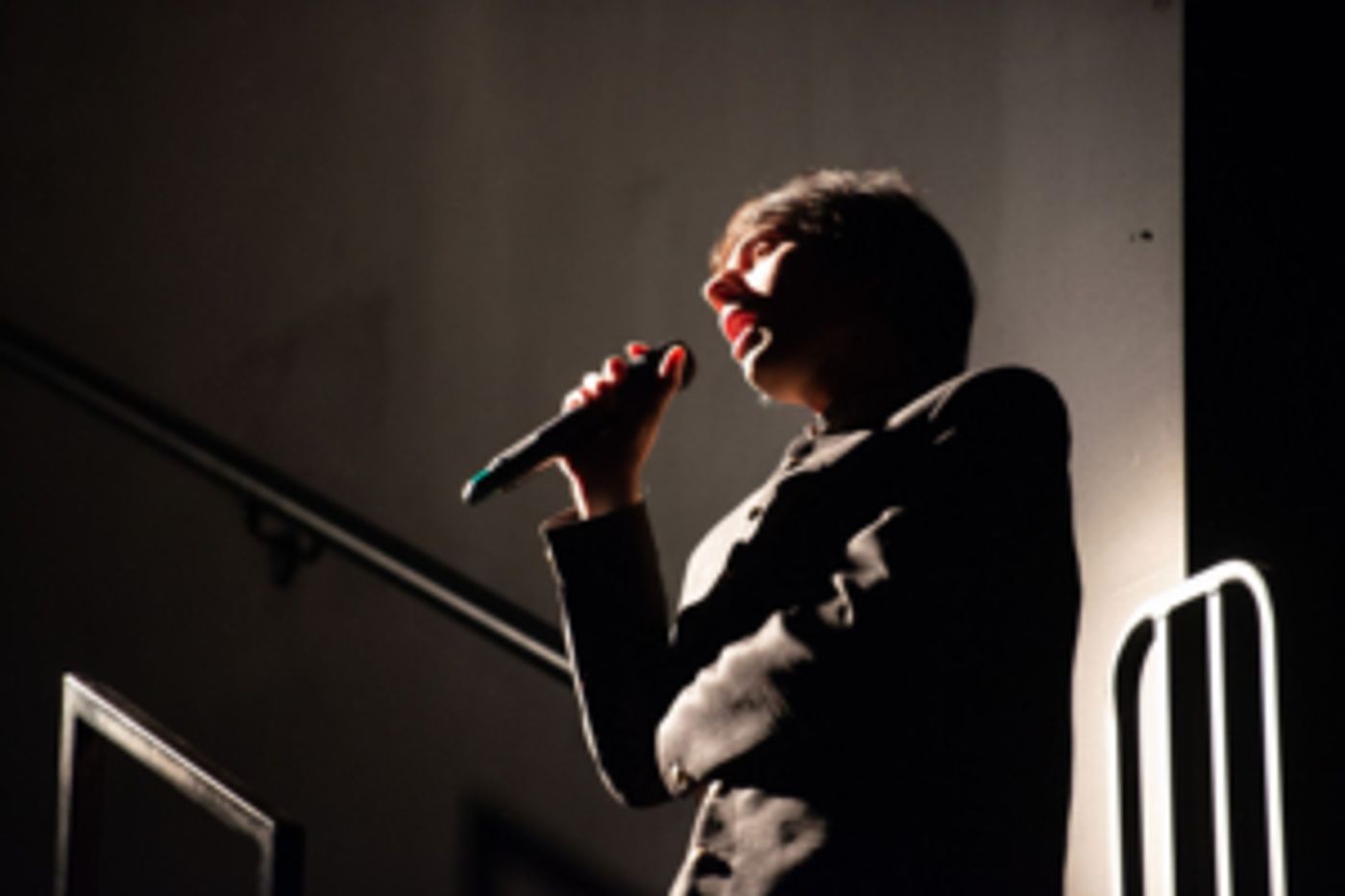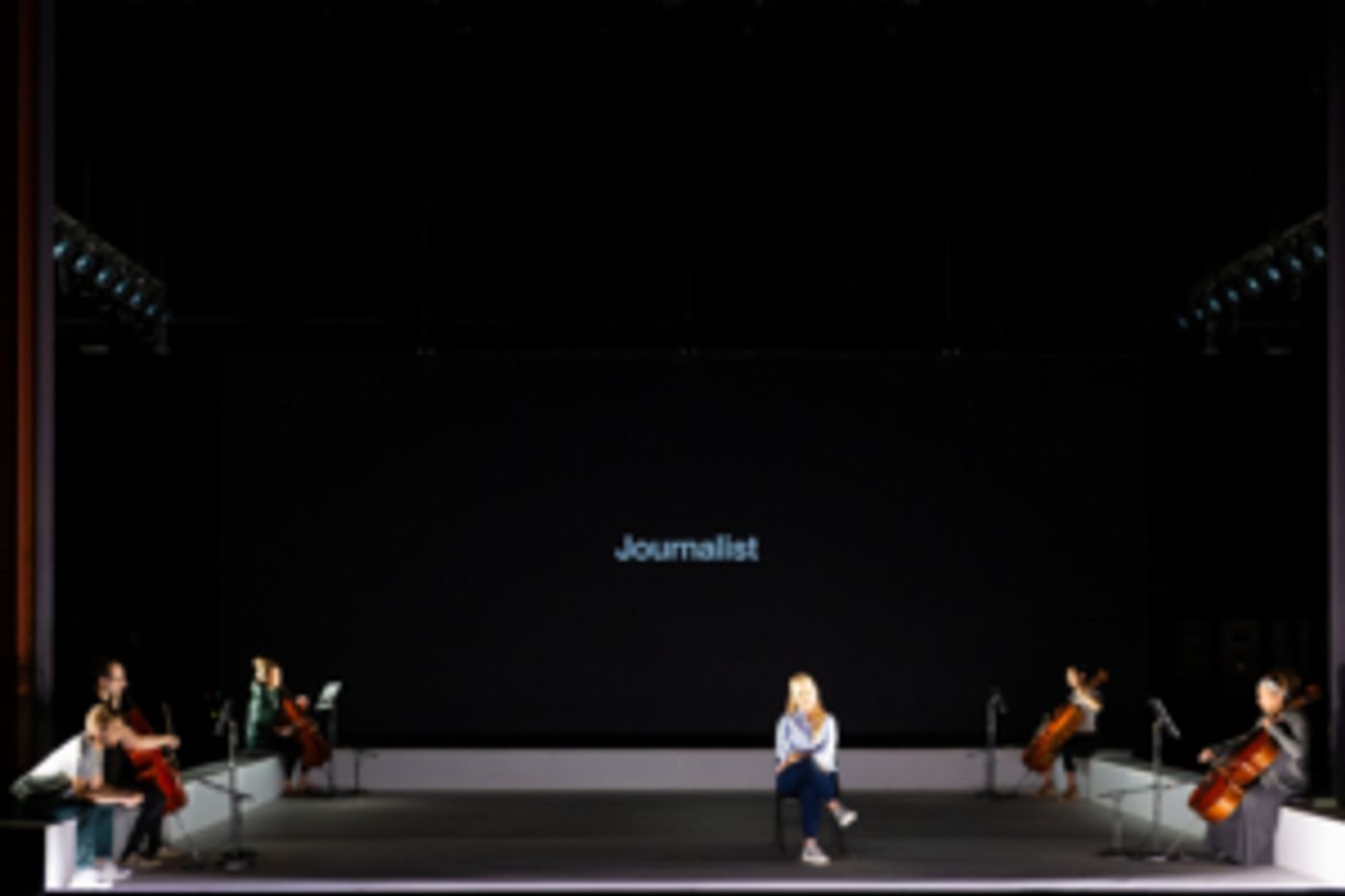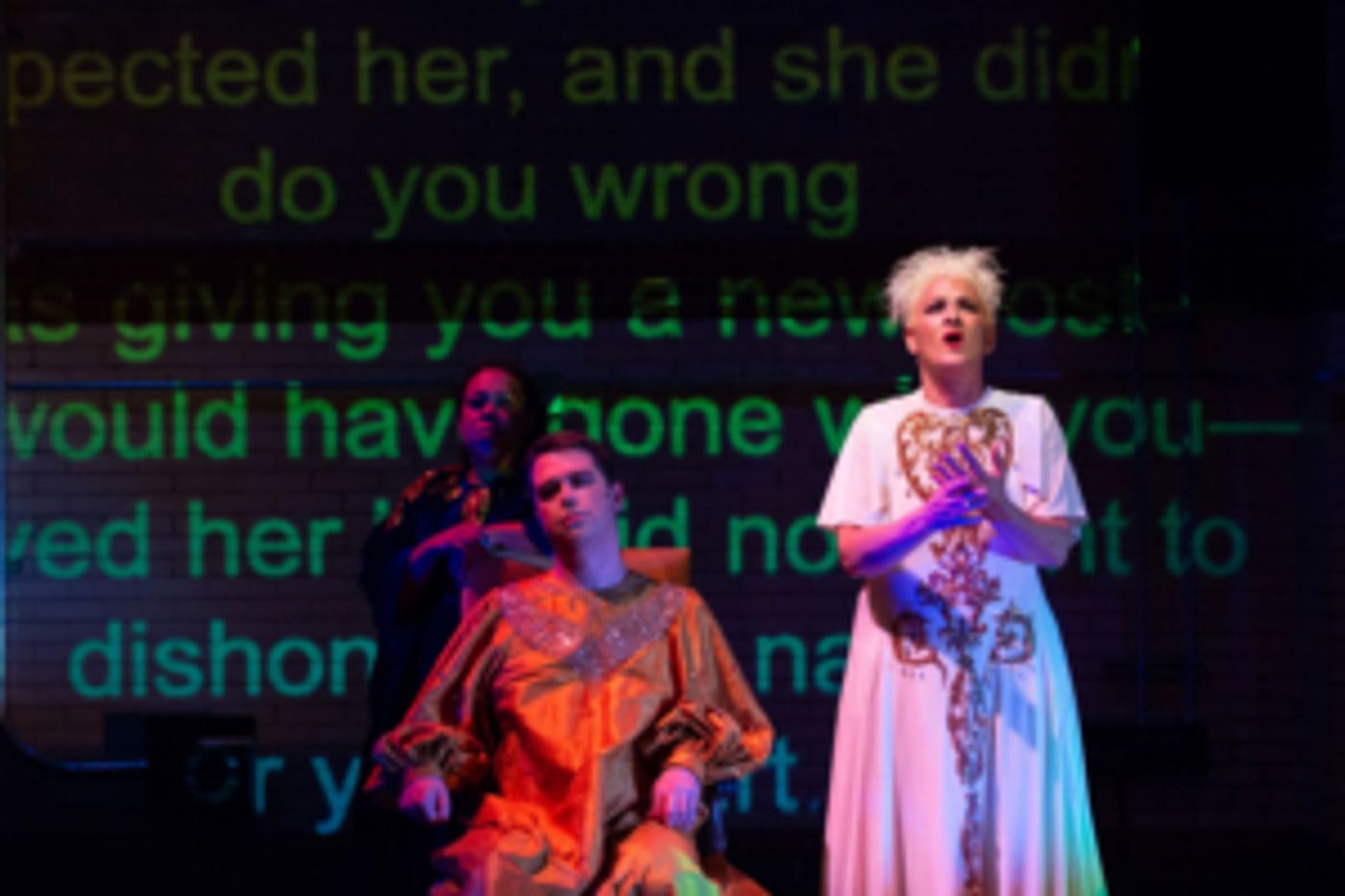Review: Forget Brooklyn. Opera Philadelphia World Premieres Show Only the Dead Know Philadelphia

Thomas Wolfe--famed for his novels including "Look Homeward, Angel"--is also remembered for the quotable title of one of his short stories: "Only the Dead Know Brooklyn." Judging my weekend at Opera Philadelphia's O19 opera festival, and its two world premieres, DENIS & KATYA and LET ME DIE, he could have also written "Only the Dead Know Philadelphia" (though it might have missed the priceless Brooklyn accents used in the story by this southern writer).
DENIS & KATYA, the 75-minute piece by Philip Venables and Ted Huffman (also director) performed at the Suzanne Roberts Theatre, was reviewed in these pages the other day, so I won't go too deeply into it. I found it only marginally more cheerful that the duo's work heard earlier this year at New York's Prototype Festival, the opera version of Sarah Kane's ode to suicide, 4.48 PSYCHOSIS.
DENIS & KATYA is part of the emerging use of opera as a new news medium. It tells the story of two teenagers in a Russian village who began live-streaming their miseries, their trials and tribulations and teenage angst, as well as the tyranny of the regime under which they lived, on Periscope, a website.

Hoffman. Photo: Dominic M. Mercier
The big questions is: Did they commit suicide or were they killed by the police? Their story ended with their face-off with Special Forces and it was seen by thousands of viewers and their story was picked up by news outlets.
Here, the story--one more look into the dark side of social media that includes YouTube and the Russian equivalent of Facebook--is told not by the couple themselves but by six characters who give their own viewpoints on the couple and their sad end. For me, these first person accounts removed the audience by one-step from the reality of what went on. Yet its cautionary tale of social media--and how "big" stories seem to last only as long as the next news cycle--was compelling.

DENIS & KATYA. Photo: Dominic M. Mercier
I found this one less interesting musically than 4.46--too much talk and too little music, here--though the stalwart singers who play all the characters (Journalist, Friend, Teacher, Teenager, Neighbor, Medic), mezzo Siena Licht Miller and baritone Theo Hoffman, couldn't have been bettered. And the brilliant four-cello quartet, Brandson Yeast, Rose Bart, Jean Kim (notably) and Jennie Lorenzo made as strong case for it as could be hoped for.
Venables made a smart choice using the resonant celli--rather than the typical string quartet--even if it gets lumped under his "fetish for groups of the same instrument." They face off against each other, whether melodic or harsh, as well as giving added nuance to the various characters who tell the tale, under music director Emily Senturia's strong leadership and director/librettist Huffman's terse account.
Hats off to the scenic and lighting design by Andrew Lieberman, sound by Rob Kaplowitz, Video from Pierre Martin and costumes by Millie Hiibel.
There will be further performances of DENIS & Katya on September 25, 28 and 29. See the Opera Philadelphia website for more information.

Augustine Mercante, mezzo Natalie Levin
in LET ME DIE. Photo: Johanna Austin
The festival's other world premiere was Joseph Keckler's LET ME DIE, a genre-bending performance piece, which was the subject of an interview I did with him in these pages last week. Like the Venables-Huffman work, it followed a wildly successful piece that appeared in January's Prototype Festival (TRAIN WITHOUT MIDNIGHT).
Keckler is an interesting character--a kind of Anna Russell for millennials. For those not familiar with Russell, she was a performance artist in the 1950s-1960s (before they had 'performance artists') who specialized in concerts filled with deadpan humor and mockery of pretension in opera. She sang and played comic musical sketches on the piano, with her best-known work being a 22-minute comic synopsis of Wagner's Ring.
LET ME DIE is something new for Keckler--a piece that doesn't totally revolve around himself but includes a trio of opera singers that was devised with dramaturg/director Elizabeth Gimbel --and it has its ups and downs. It's based on his idea that it would be fun to die over and over again. "I don't like real death," he tells the audience, "but I like fake death"--and he feels that it's what opera audiences go for. What if we gave people what they want, he asks: death, over and over again.
The ups were, like Russell, humor and mockery of pretention, and his resonant baritone with a very high tenor extension. (He was a Metropolitan Opera National Council winner, though he claims to have entered on a whim and never went the usual route for singers in training, though he studied with famed tenor George Shirley, the first Afro-American tenor to sing a major role at the Met.)
He made his entrance doing Tosca's death scene, making mention of the Met's last production, which used a body double for her leap at Castell Sant'Angelo and talked about his background. "As a child, I used to stage some tricycle accidents, to see if someone would stop and ask if I was okay," he recalls. As an adult, in some ways, he thinks of himself as the shadow version of a wedding singer: a funeral singer.
Besides excerpts from the modern opera canon, Keckler added a couple of his own pieces, tied to autobiographical elements in his monologue: "Opera Pirate" and "Smoke Song." I particularly liked the former--the "pirating" being the kind that copies recordings"--a stylish piece, in Italian and (memorably) in the style of Mozart that told of his life of "crime." But "Smoke Song" has a hilarious reference to a death row prisoner who is embittered because, for his last meal, he was given spaghetti rather than the Spaghetti-O's that he asked for.
Among his funniest observations were his view of the character Orfeo (from several operas) as "the patron saint of opera death," who charms his way into the underworld, and those relating to Monteverdi's "Lasciatemi morire, (Let me die)," which gave the evening its name. It's a fragment of an aria about death that is all that remains from an otherwise lost opera about Ariadne auf Naxos.
Shortly thereafter, he turns his podium into a coffin and lies down, not moving a muscle until the very end of the evening. This turned out to be a big mistake from my view, despite the high quality of singing from soprano Veronica Chapman-Smith, mezzo Natalie Levin and countertenor Augustine Mercante, and the interesting excerpts from operas that ranged from Purcell's DIDO AND AENEAS to Debussy's PELLEAS.
Rather than death scene after death scene, by Verdi, Rossini, Donizetti, Massenet and Puccini, among many others, the show seemed to lack some pithy commentary about the arias by Keckler. I'm sure that this piece has a long way to go in development--but it's definitely a case where more Keckler is never enough, particularly when the piece ends with the performance of someone else, dancer-actor Saori Tsukada, rather than the creator. Like death scenes, the audience came for him--and he should give them what they want
Kudos should go out to arranger Matthew Dean Marsh, lighting designer Evelyn Swift Shuker, sound designer Isaac Levine, video by Lianne Arnold and, especially, costume designer Diego Montoya.
There will be further performances of LET ME DIE on September 25-28. See the Opera Philadelphia website for more information.
Reader Reviews
Videos

